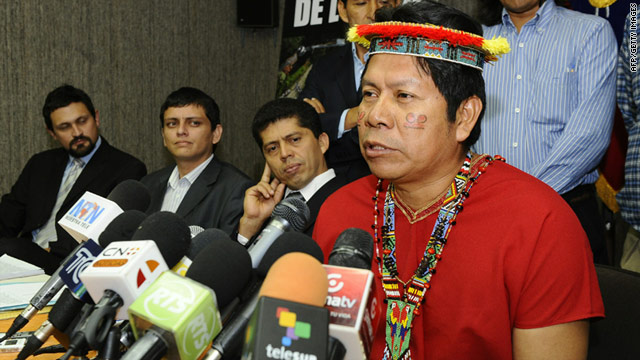“Aparentemente hay el interés de concesionar todo antes que se apruebe la Ley de Consulta”
- Señala investigador del IIAP
- Blgo. José Álvarez, respecto a lotización de la Amazonía para exploración y explotación petrolera.
El tema de la lotización de la Amazonía para exploración petrolera cada día preocupa más debido a que éstas empiezan a ejecutarse de manera inconsulta e incontenible en el territorio selvático. Así lo ha indicado Róger Rumrill, hace poco y lo ratifica el investigador del IIAP, José Álvarez.
“La inexistencia de la Ley de Consulta Previa permite ahora que el gobierno siga privatizando, ofertando, vendiendo la Amazonía, concesionando a empresas multinacionales, gasíferas, petroleras y forestales; un ejemplo es que la Plaza de Arnas está dentro de una concesión (Lote 122). De los 60 contratos petroleros firmados hasta ahora hay 24 contratos que están sobrepuestos en territorios indígenas. Vemos ahora y a futuro un escenario lleno de conflictos sociales porque este gobierno no quiere respetar las normas”, expresó Róger Rumrill.
Blgo. José Álvarez, investigador del IIAP.
Mientras que el Blgo. José Álvarez, precisó lo siguiente: “Hay más de un 70% concesionado para exploraciones y explotaciones petroleras. Si las comunidades no dan autorización a esas empresas para entrar a sus territorios titulados, ellos no pueden entrar, necesitan de un permiso. En Maquía hay una Reserva donde no han dado autorización a una empresa para explorar y el Poder Judicial les ha dado la razón, no pueden explorar cuando alguien tiene un derecho sobre la superficie de un sitio”, mencionó Álvarez.
¿Antes que se apruebe la Ley de Consulta Previa siguen entregando más Lotes para exploración?
-Es una pena que no se avance en el tema, aparentemente hay el interés de concesionar todo antes que se apruebe la Ley de Consulta. Es una pena porque se están atropellando derechos inalienables de comunidades al tomar decisiones sobre su presente y futuro. Lo que generan es una fuente de conflictos, están sembrándose futuras tempestades con la irresponsable dilatación del proceso de aprobación de la Ley de Consulta. Lo que de por sí exige la Ley Internacional y los pueblos para que se les tome en cuenta sobre las decisiones de lo que se va a hacer y no hacer en su territorio. Es un error esa dilatación.
¿Gran Tierra Energy dice sentirse decepcionada por no haber encontrado petróleo en el Lote 128, mas continúa en el 122 y está en espera de 3 Lotes más por Datem del Marañón?
-El petróleo lo necesitamos en Loreto y debe haber límites para la exploración y explotación, pero no por eso se puede hacer esa actividad donde sea como la que se hace en “las puertas de Iquitos”, en zonas sensibles como la cuenca del Nanay, donde entran al patio trasero de las casas sin consultar. Para mí es una buena noticia que no se halle petróleo en zonas cercanas a Iquitos porque implicaría riesgos tremendos, aquí, se necesita el petróleo pero no a costa de la salud o dignidad de las personas.



 56 COMMENTS
56 COMMENTS 